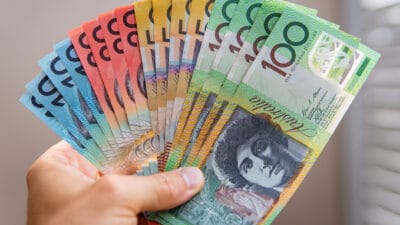There is no doubt that residential property has become a very popular investment over the past few decades. In this time, we've seen strong price rises in our major cities, especially Sydney and Melbourne, and many investors have done very well.
But it's important to consider that most people have borrowed to invest in these properties. While property prices have been generally less volatile than shares over the past few decades, when you factor leverage into the equation that volatility is actually much higher than you might first realise.
Property can be riskier than it seems
For example, let's take a typical investment property purchase.
Say you purchase an investment property for $500,000 with a $100,000 deposit. If property prices rise 6% in a year, then great, your property is now worth $530,000 (on paper). That means, theoretically, your $100,000 deposit has increased in value to $130,000, which is a 30% gain.
But this also works in reverse. If, for example, property prices go down 6%, the value of your initial investment has actually fallen by 30%.
If share prices fell by 30% in a year, this would be viewed by many as a share market crash.
Although property prices are now on the rise in most of our major cities, it is easy to forget the recent bad times. Less than a year ago, the media headlines were still full of stories of falling house prices. Up until mid to late last year, we were seeing a strong market correction in most major cities, many falling by even more than 6%.
And this doesn't take into account the additional costs involved in purchasing a property such as stamp duty and solicitor fees. Many people like property for rental returns but it's important to factor in additional costs including agent management and letting fees, periods where your property is vacant, and maintenance costs.
Shares provide great diversification
I think one of the main reasons people invest in property is simply because it is a type of investment that they can understand. But that doesn't necessarily make it a better investment…
On average, shares have returned around 10% per annum including dividends over the past few decades, making them a great long-term investment.
Take, for example, an investment in just one quality company like Washington H. Soul Pattinson and Co. Ltd (ASX: SOL). By investing in 'Soul Patts' shares you get instant exposure to a range of industries, rather than investing all your money in one lumpy asset.
You can take this diversification story further by investing in a range of other S&P/ASX 200 Index (INDEXASX: XJO) shares such as Telstra Corporation Ltd (ASX: TLS), Wesfarmers Ltd (ASX: WES), Cochlear Limited (ASX: COH), Macquarie Group Ltd (ASX: MQG) and BHP Group Ltd (ASX: BHP).
By doing so, you are not only spreading your risk into more market segments, but you are spreading your risk amongst a range of separate share listings. Shares can also provide a great source of income from dividends.
In addition, you can get started in shares with a lot less money. While your property investment deposit maybe $100,000 or more, just $10,000 can easily get you started on investing in a portfolio of 10 different shares.
Foolish takeaway
While I do agree that residential property is a good long-term investment, I prefer investing in shares due to the lower initial cost required, easy access to diversification, lower hassle factor, lower fees, and superior long-term performance.








